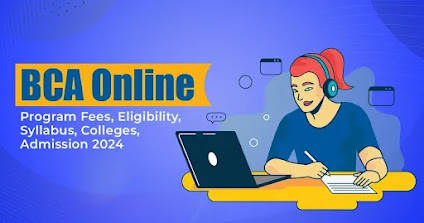How Online Education Degree Fulfil For UPSC aspirants
Meta Description: Online education degrees help UPSC aspirants by offering ability, cost-efficiency, resources, self-paced study, convenience, and technological integration.
Can I start UPSC preparations after 12th
Yes, you can start preparing for the UPSC exam after completing your 12th standard. While most candidates start their preparation after completing their graduation, it is not uncommon for some aspirants to start early. Starting early gives you more time to cover the wide syllabus and develop a strong foundation in the subjects required for the exam.
Here are some tips for starting your UPSC preparation after 12th:
Understand the Exam Pattern and Syllabus: Familiarise yourself with the UPSC exam pattern, syllabus, and the different stages of the exam.
Choose the Right Optional Subject: If you plan to appear for the UPSC exam after graduation, choose your optional subject wisely. You can start studying this subject along with your graduation studies.
Focus on Current Affairs: Start reading newspapers, magazines, and online sources to stay updated with current affairs. This will help you in both the Preliminary and Main exams.
Build a Strong Foundation: Focus on building a strong foundation in subjects like History, Geography, Polity, Economics, and General Science. This will be beneficial for both the Preliminary and Main exams.
Develop Reading Habits: Start reading books and other study material related to the UPSC syllabus. Develop a habit of reading and retaining information.
Time Management: Learn the skill of properly managing and arranging your time. Set up a certain time for learning and revising.
Join Coaching Classes: Consider joining coaching classes or online courses specifically designed for UPSC preparation. They can provide you with guidance and a structured approach to your studies.
Practice Previous Year Papers: Solve previous year's UPSC question papers to understand the exam pattern and improve your problem-solving skills.
UPSC prep includes dedication, hard effort, and regularity. Starting early can give you an advantage, but it's important to maintain your focus and continue your preparation even after completing your graduation.
What is the eligibility criteria of UPSC Exam
To be eligible for the UPSC exam, a candidate must meet the minimum age requirement, which varies from 21 to 32 years. Here are the age requirements for different groups.
The upper age limit for those belonging to the OBC groups is 35 years.
The maximum age limit for individuals belonging to the SC and ST groups is 37 years.
The maximum age limit for individuals in the PWD categories is 37 years.
The maximum age restriction for ex-military personnel who received early retirement due to injury acquired during their job or conflict is 40 years.
Is Online Education Degree valid for UPSC exam
The minimum educational requirement for the UPSC exam is a bachelor's degree from a university that is recognized and approved by the government. The validity of an online degree is dependent upon the recognition of the university by government councils.
Final-year students are eligible to apply for the UPSC preliminary exams. Upon completing the exam, they can verify their graduation results.
Students who have qualifications in ICAI, ICWAI, and ICSI from an accredited authority are eligible to apply for the examination.
Final-year students of Medical courses who earned their MBBS degree and have finished their internship are eligible to apply for the UPSC exam.
How can you apply for UPSC exam
To apply for the UPSC exam, you need to follow these steps:
Online Registration: Visit the UPSC official website (upsc.gov.in) and click on the "Apply Online" link for the Civil Services Examination.
Fill Application Form: Complete the online application form with correct personal and educational information. Submit digitised copies of your photograph, signature, and any other required papers.
Pay Application Fee: Pay the application fee online using a debit/credit card, net banking, or other available modes of payment. The fee is non-refundable.
Download Confirmation Page: After successful submission of the application form and payment of the fee, download the confirmation page for future reference.
It's important to regularly check the UPSC website and notifications for any updates or changes in the application process.
How to design UPSC exam pattern and syllabus
Designing the UPSC exam pattern and syllabus requires careful consideration to ensure the assessment aligns with the intended goals of selecting candidates for various government positions. Here is a basic framework that you can adhere to:
Exam Stages: The UPSC exam typically consists of three stages:
Preliminary Examination: Objective-based questions for candidate screening in the Main Examination.
Main Examination: Subjective questions to evaluate comprehension and in-depth knowledge.
Personality Test (Interview): Assessing the personality, suitability, and communication abilities of the applicant.
Syllabus Design: The syllabus should be comprehensive and cover a wide range of topics relevant to the civil services. It should include subjects like:
Indian History and Culture
Indian and World Geography
Indian Polity and Governance
Economic and Social Development
General Science
Current Affairs
Mental Ability and Logical Reasoning
Ethics and Integrity
Exam Pattern:
Preliminary Examination: Objective-type questions with negative marking to test the candidate's knowledge of various subjects.
Main Examination: Descriptive-type questions to test the candidate's understanding and analytical abilities. The main exam should include papers on:
Essay
General Studies (Multiple Papers)
Optional Subject (Selected by the candidate)
Personality Test: Interview conducted to assess the candidate's personality traits, suitability, and communication skills.
Advantage of Online education Degree for UPSC Exam aspirants
Online learning provides many advantages for individuals preparing for the UPSC exam:
Flexibility: Online education provides you with flexible study times and locations. The flexibility might help UPSC candidates combine their education with work and family obligations.
Cost-Effective: Online learning is frequently simpler than in-person learning. UPSC candidates hoping to save money on studies may benefit.
Access to Resources: Online education offers study materials, conferences, and forums. UPSC applicants without traditional educational resources may benefit from this.
Convenience: UPSC candidates can study easily online from any place with an internet connection. This can benefit students who live far from regular schools.
Technological Integration: Online education typically uses technology to make learning more participatory. This may benefit UPSC hopefuls who find traditional study methods uninteresting.
Overall, online education can be a valuable tool for UPSC aspirants looking to enhance their knowledge and skills in preparation for the exam.
Conclusion
Online education degrees can fulfil the needs of UPSC aspirants by offering flexibility, cost-effectiveness, access to resources, self-paced learning, convenience, and technology integration. These benefits can help aspirants effectively balance their studies with other commitments, save money, access a wide range of resources, progress at their own pace, study from anywhere, and engage with learning materials in a more interactive way. Overall, online education degrees can provide a valuable and convenient option for UPSC aspirants seeking to enhance their knowledge and skills in preparation for the exam.



Comments
Post a Comment